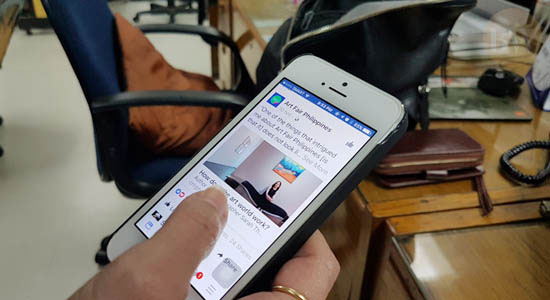
68% of Filipino girls, young women experience online harassment
NEARLY SEVEN in 10 or 68% of girls and young women in the Philippines have experienced online harassment, specifically on social media, according to a global study by girls’ rights organization Plan International. The Philippine rate is higher than the worldwide average of 58%, based on the report “Free to be online? Girls’ and Young Women’s Experiences of Online Harassment” released Sunday. In the Philippines, 50% of those who have been harassed said such incidents happen frequently while 33% said its was very frequently. The study also revealed that 79% of the Filipino women surveyed said that other girls they know received threats of sexual violence on social media, while 67% said they were harassed by people they know. “The high incidence of online violence against girls and young women is alarming. In this global pandemic and in an increasingly digital world, girls are more at risk than ever,” Mona Mariano, Plan International Philippines gender specialist, said in a statement. “We must understand that it may also impact girls’ lives offline. Experiencing harassment or abuse online may take a huge toll on a girl’s confidence and wellbeing,” she added. The research is based on a survey and in-depth interviews of over 14,000 girls aged 15-24 in 31 countries, including 500 from the Philippines. The study, conducted across multiple continents, suggested that women from various countries share similar experiences of online harassment and discrimination and believe that the coronavirus pandemic limits their freedom of expression and drives them out of digital spaces. To counter the heightening online violence against women, Plan International has been pushing for a “whole-of-society approach,” which highlights the roles of governments, technology and social media firms, civil society, among other sectors, in promoting digital citizenship education, reporting abuse, crafting and implementing inclusive policies and laws, and amplifying their voices. — Kyle Aristophere T. Atienza
Almost 250,000 displaced overseas workers back to hometowns
NEARLY A quarter of a million overseas Filipino workers (OFWs) have returned to their hometowns after being displaced by the coronavirus global pandemic, the Labor department reported on Sunday. As of October 11, the Department of Labor and Employment (DoLE) said they have facilitated the domestic travel of 248,469 OFWs to their respective home regions since the assistance program started in May. DoLE data show the number of returning OFWs peaked in August to early October with over 100,000 going home. — Gillian M. Cortez
OFWs in Canada get assistance from host country
FILIPINOS TEMPORARILY working in Canada will get assistance worth over P36,000 from the Canadian government to cope with the impact of the coronavirus pandemic, according to the Labor department. In a statement on Sunday, the agency said the Philippine Overseas Labor Office in Vancouver, Canada reported that the benefit comes from adjustments in the employment insurance program. “Canada has made changes to its Employment Insurance program and introduced a package of recovery benefits to better support not only its citizens but also qualified temporary Filipino workers,” the Department of Labor and Employment (DoLE) said. The benefit covers both employed and self-employed overseas Filipino workers (OFWs) who are not covered by the state emergency insurance. “The Canadian government’s continuous support to Temporary Filipino Workers is very much appreciated by the Philippines, most especially at this time of the pandemic,” Labor Secretary Silvestre H. Bello III said. Other employment assistance offered by the Canadian government to OFWs affected by the pandemic are the Canada Recovery Sickness Benefit for those who have to temporarily stop work to isolate because they contracted the virus, and the Canada Recovery Caregiving Benefit for those who are unable to work because they have to take care of their child below 12 years old or a family member who needs supervision. — Gillian M. Cortez
